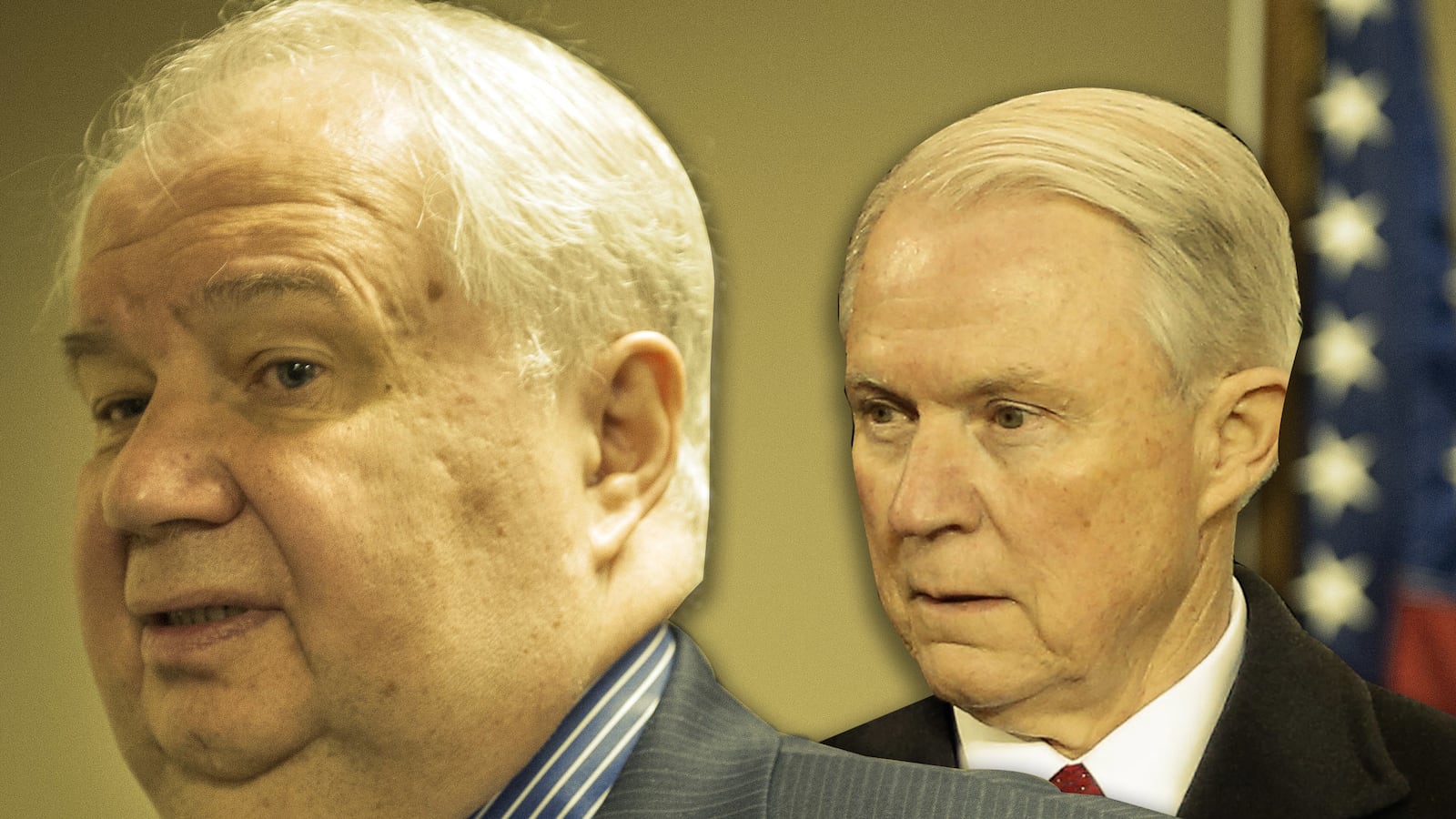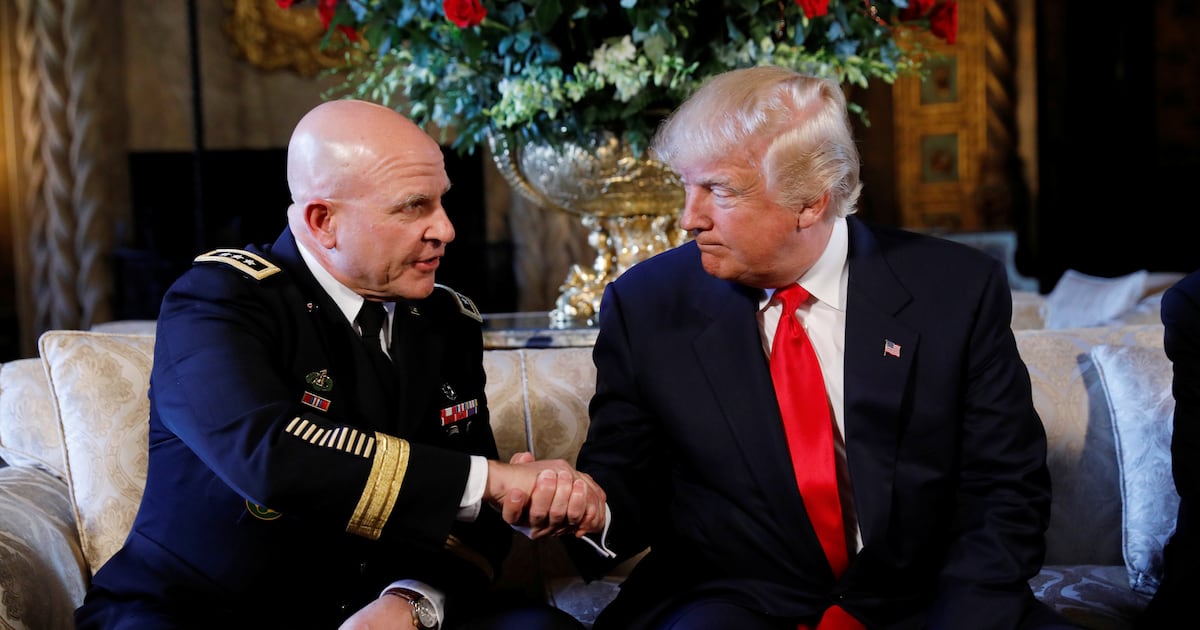On March 20, 2014, Kyle Parker, a Russia specialist at the U.S. Helsinki Commission, received an email from a sender called “Lost Soul.” The subject, written in Cyrillic, translated to “Burn in Hell.” The tone hardly improved from there:
“Well, well, American bitch, get your cosseted ass ready for a fucking. And we’ll do the same to that rat called Lyosha, you well know in your case it’s better to tell the truth, the whole truth about your selfish intentions… sorry I cannot personally execute you Anglo-Saxon geek… now whore, prepare the vaseline hahahah.”
Lyosha here meant Alexei Navalny, the leader of the Russian opposition. When Parker forwarded Lost Soul’s death threat to Anton Vushkarnik, the congressional affairs director at the Russian embassy in Washington, he received a somewhat chilly reply: “We have to be gentlemen despite anything. Though I would agree, Navalny is done. And one more thing—I really doubt you will see Russia again, at least as long as Vladimir stays in Kremlin.”
Vushkarnik’s boss at the time was a man whose own mode of diplomatic outreach is reputed to be much more genteel and effective when dealing with American interlocutors: Sergei Kislyak, the outgoing Russian ambassador to the United States.
The Washington Post reported Wednesday night that Kislyak spoke with future U.S. Attorney General Jeff Sessions on two occasions last year, while the then-senator was advising Donald Trump's presidential campaign. One of these exchanges took place in Sessions' office, along with two of his senior adies, on Sep. 8, shortly before the election and in the midst of what U.S. intelligence agencies are unanimous in concluding was a concerted Russian cyber espionage and disinformation campaign to influence the outcome of that contest. During his confirmation hearing in January, Sessions told the Senate Judiciary Committee: “I have been called a surrogate at a time or two in that campaign and I did not have communications with the Russians."
Sessions’ office now says that he met with Kislyak strictly in his capacity as a senator, not as a campaign advisor. The second time he spoke to Kislyak was on the sidelines of the Republican National Convention in Cleveland last July. The senator gave a speech at the conservative Heritage Foundation. According to spokesperson Sarah Isgur Flores, Sessions' speech was attended by around 50 ambassadors, a group of which approached him afterward to invite him to other foreign-sponsored functions. He didn't attend any, Flores said.
Maybe. But Sessions' views on Russia changed markedly over the course of a year. In late March 2015, he told Real Clear World that it "needs to be clear that Russia knows that there will be a high price to pay if this behavior continues," referring to Putin's strongarm tactics in Georgia and his invasion of Ukraine. But once he'd joined the Trump campaign as chairman of its national security advisory committe, his tone began to soften. "I think an argument can be made there is no reason for the U.S. and Russia to be at this loggerheads," he said before an audience at the American Council for Capital Formation in mid-March. "Somehow, someway we ought to be able to break that logjam. Strategically it’s not justified for either country. It may not work. Putin may not be able to be dealt with, but I don’t condemn his instincts that we ought to attempt to do that.”
Then, on July 31, 2016, about a week following his tête-à-tête with Kislyak in Cleveland, Sessions became even more reconciliatory, telling CNN: "This whole problem with Russia is really disastrous for America, for Russia and for the world. Donald Trump is right. We need to figure out a way to end this cycle of hostility that’s putting this country at risk, costing us billions of dollars in defense, and creating hostilities."
Kibitzing with Russia’s envoy to Washington is apparently something of an occupational hazard these days.
Lt. Gen. Michael Flynn lost his job as Trump’s national security advisor a fortnight ago for lying to Vice President Mike Pence about the nature of his own phone calls to Kislyak in December, right around the time that the Obama administration expelled 35 Russian spies and shuttered two Russian intelligence-gathering facilities in retaliation for the Kremlin’s interference in America’s political system. Flynn had denied his discussion of sanctions with the ambassador to both Pence and the FBI .
Now Democrats are calling for Sessions to either resign as attorney general or recuse himself from in any forthcoming investigation into ties between the White House and the Russian government.
To make matters more interesting, CNN has characterized Kislyak as more than a mere foreign ministry official, but as “a top spy and recruiter of spies,” citing current and former U.S. intelligence officials.
Others who know him disagree, describing Kislyak as the “soft-spoken face of Putinism,” comparing him favorably with his brusque predecessor at the embassy, Yuri Ushakov.
“Ushakov was just a prick whereas Kislyak was the jovial, rotund fellow who, as long as you didn’t pay attention to what he was saying, was unobjectionable,” one congressional aide said.
Trained as an engineer in Moscow, Kislyak joined the Soviet Foreign Ministry in 1977 and later served in a variety of roles following the collapse of the USSR, including deputy foreign minister and Russia’s ambassador to NATO before alighting at the mission on Wisconsin Avenue. He was a protégé of longtime Soviet ambassador Anatoly Dobrynin, who similarly came in for unflattering public scrutiny in the United States in the 1960s when he denied the deployment of Soviet missiles to Cuba. (Dobrynin would later serve as Henry Kissinger’s back-channel to Leonid Brezhnev during the Ford administration.)
Kislyak always had a keen interest in arms control and nuclear de-proliferation, especially when it came to Iran, about which he was voluble in company. “You’d be sitting there talking to him,” the congressional aide said, “and all of a sudden he’d start comparing Japan’s nuclear research to Iran’s nuclear research and you’d be like, ‘Yeah, right… Wait, what the fuck? What do you mean Japan and Iran?’”
“His presentation was more apt for a Washington audience. In that sense, he was more effective and perhaps more dangerous to U.S. interests. I never got the feeling that he was an old-hand intel guy. That doesn’t mean he wasn’t, of course.”
“I think he is straight-up diplomat like [Vitaly] Churkin and [Sergei] Lavrov,” a former CIA operative stationed in Moscow during the height of the Cold War told The Daily Beast, referring to the recently deceased Russian ambassador to the United Nations and the current Russian foreign Minister. “I don’t think they’d make the ambassador to the United States a KGB guy. It’s not really their style.”
That said, the job of any Russian ambassador is to oversee the rezidentura, or mission-bound spy station, putting Kislyak at the top of the pyramid of Russia’s security services in Washington. He would, therefore, likely have intimate knowledge of everything Russia's foreign and military intelligence operatives were up to in Washington and wouldn’t necessarily need to hail from the SVR or GRU or any of the other “power ministries" to cultivate assets and informants on foreign soil.
Vladimir Frolov, a former Russian diplomat, dismissed the whole Sessions-Kislyak story as a “tempest in a teapot.”
“He is a career MFA guy with no connection to organs,” Frolov said. “He is Soviet, highly professional, a top authority on the U.S. and nuclear arms control. He’s also very savvy on how to deal with the U.S. Meeting with Sessions was routine outreach. There was no covert action there. Kislyak’s job has always been to sit down for coffees, lunches, dinners with establishment figures and he has been doing his job well since the 1970s.”
The former CIA operative noted that Kislyak’s heritage was always at odds with his political loyalty because he’s an ethnic Ukrainian. And yet, when the USSR blew up, rather than join the fledging independent government in Kiev, he remained faithful to Moscow. “So when Kislyak talks about Ukraine in the way that he does, the Ukrainians see it as betrayal.”
Russian political figures now see the spotlight on their ambassador as something even worse than that. Fedor Lukyanov, who was chairman of the Presidium of the Council on Foreign and Defense Policy, was irate on the phone with The Daily Beast. “I have only curse words left when I see idiots at CNN calling Kislyak a spy! I cannot remember when diplomats were treated with such outrageous disrespect.”
“This scandal is part of the disgraceful Washington hounding of Russian diplomats,” according to Sergei Markov, a member of the Russian Public Chamber. “Kislyak is now in a very dangerous, life-threatening position. At least six Russian diplomats died in the past few months. This is a terribly tragic time for Russian diplomacy,”
Even opposition journalists find the scandal now engulfing the 66-year-old as unfair. Stanislav Belkovsky, an analyst on independent Rain TV, told The Daily Beast: “This is not about Kislyak. It could be some Ivanov and Washington would still call him a ‘spy.’ This is about U.S. domestic issues, a desperate struggle to get rid of Attorney General Sessions.”






